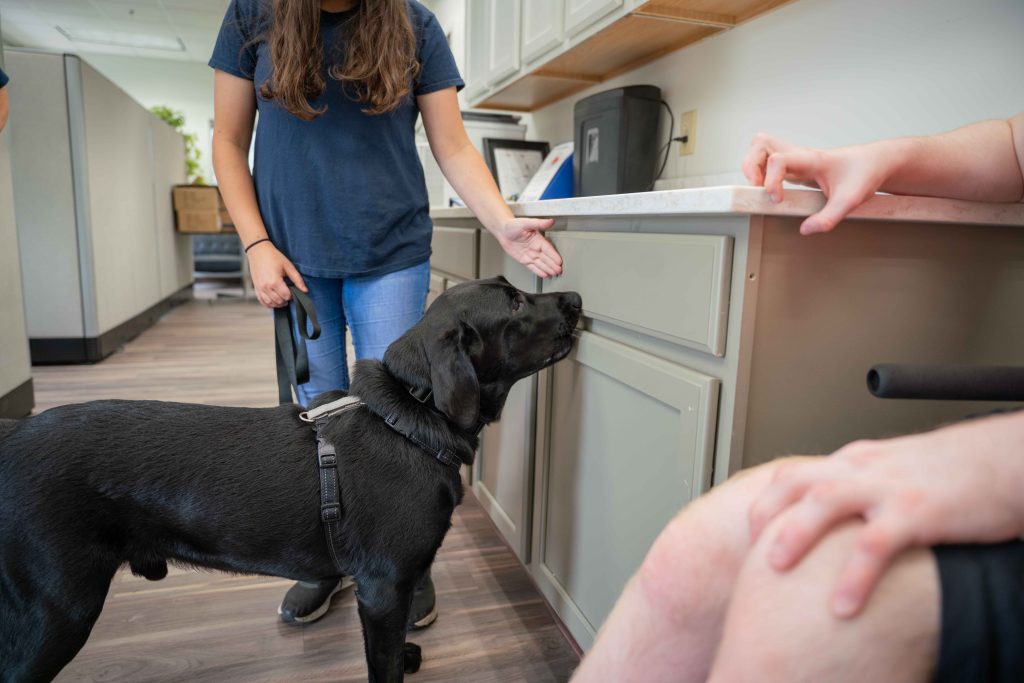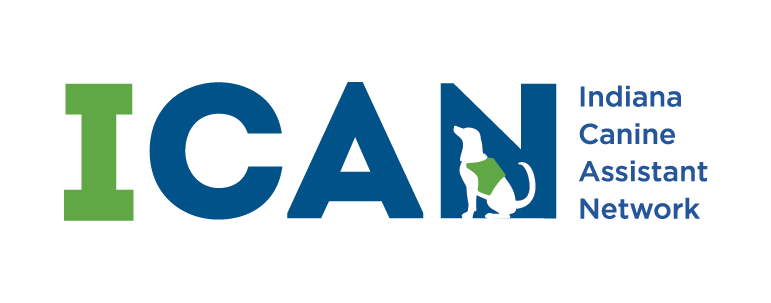The Difference Between Service, Therapy, and Emotional Support Dogs

Service Dogs
The Americans with Disability Act (ADA) defines a service dog as one that has been individually trained to perform tasks on cue that assist a person with a disability. The tasks that the service dog performs must be directly related to the person’s disability.
Our service dogs go through extensive, specialized training where they learn to perform anywhere from 60 to 80 cues. They also have ADA-protected public access, which means that people with disabilities can bring their dogs to grocery stores, inside restaurants, onto airplanes, and other places. Service dogs display excellent behavior in public and around new people or environments as well.
Therapy Dogs
Therapy dogs are usually people’s own pets that are qualified (through a therapy dog organization) to visit hospitals, schools, nursing homes, and so on. Sometimes healthcare professionals and teachers incorporate therapy dogs into their work with their clients or students. They typically behave well around different people and situations. However, therapy dogs do not undergo extensive training; they cannot fly with their owners; and they are not protected by the ADA.
Emotional Support Dogs
Emotional support dogs provide comfort and companionship to their owner just by their presence. Because comforting a human is not trained behavior, emotional support dogs are not considered assistance (service) dogs under the ADA, although they are allowed to fly with their owners. They also don’t go through extensive and specialized training, nor do they typically behave well around new people or environments.

Your Options
You may be eligible for assistance from an ICAN service dog if you:
- Live in Indiana.
- Have a physical, developmental, or cognitive disability.
- Are at least 8 years old (or at least 18 years old for a diabetic alert dog).
- Can handle a service dog in public on your own (or have responsible guardians who can help you).
- Have exposed your child to dogs for eight to 12 months (if applicable).
- Are willing and able to work with your dog every day, as well as provide vet care and healthy food
If you don’t qualify for a service dog, we can still guide you to another organization, as you may be eligible for a therapy or emotional support dog. For more on the differences between these types of dogs, please visit the following websites:
- The Pacific ADA Center: adapacific.org/faq#animals
- Therapy Dogs International: tdi-dog.org
- Paws and Think: pawsandthink.org
- Love on a Leash: www.loveonaleash.org/
